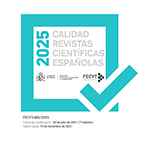Spontaneous cities: Security and public space in Latin America
Abstract
This article aims to introduce the debate about the incompatibility of the “spontaneous city” as a project and the rational-normative-hegemonic city erected in our contemporary capitalist societies, embedded in global and local processes. Considering the reflections about the city and the spatial revolution remarked by Lefebvre, this paper summaries some of the current tendencies in the urbanism and the architecture that aim to create “secure spaces” and that constitute, indeed, a new commodity available only to wealthy groups of a given society. By questioning orthodox and commercial solutions to the problem of the delinquency and the criminality in Latin American scenarios, this article reaffirms the necessity of a broad critique to the process of construction and representation of crime, its geographies and its social causes.
Downloads
Article download
License
In order to support the global exchange of knowledge, the journal Geopolítica (s) Revista de estudios sobre espacio y poder is allowing unrestricted access to its content as from its publication in this electronic edition, and as such it is an open-access journal. The originals published in this journal are the property of the Complutense University of Madrid and any reproduction thereof in full or in part must cite the source. All content is distributed under a Creative Commons Attribution 4.0 use and distribution licence (CC BY 4.0). This circumstance must be expressly stated in these terms where necessary. You can view the summary and the complete legal text of the licence.









